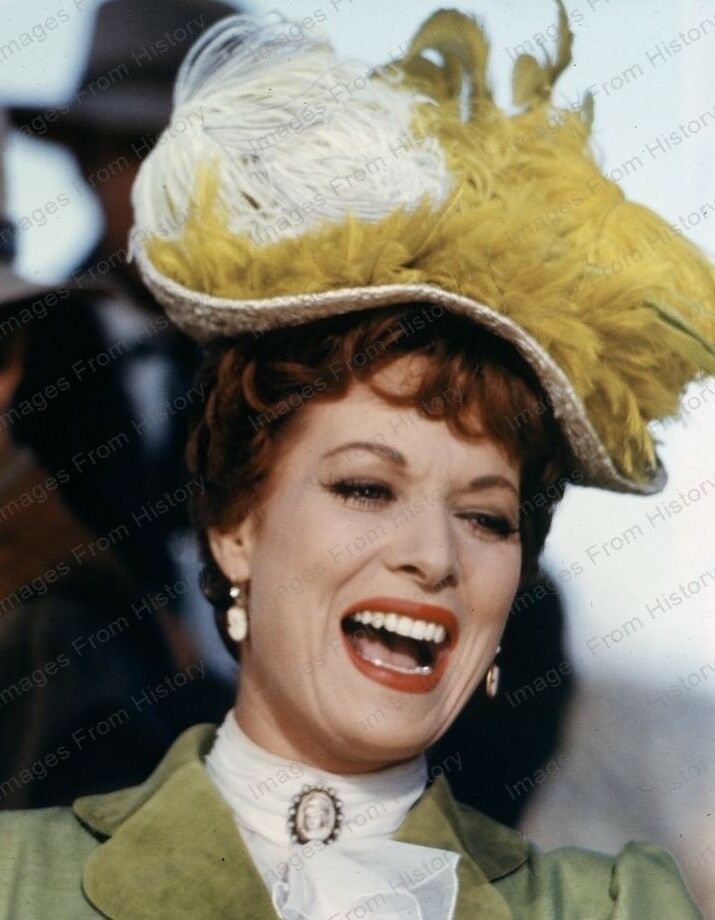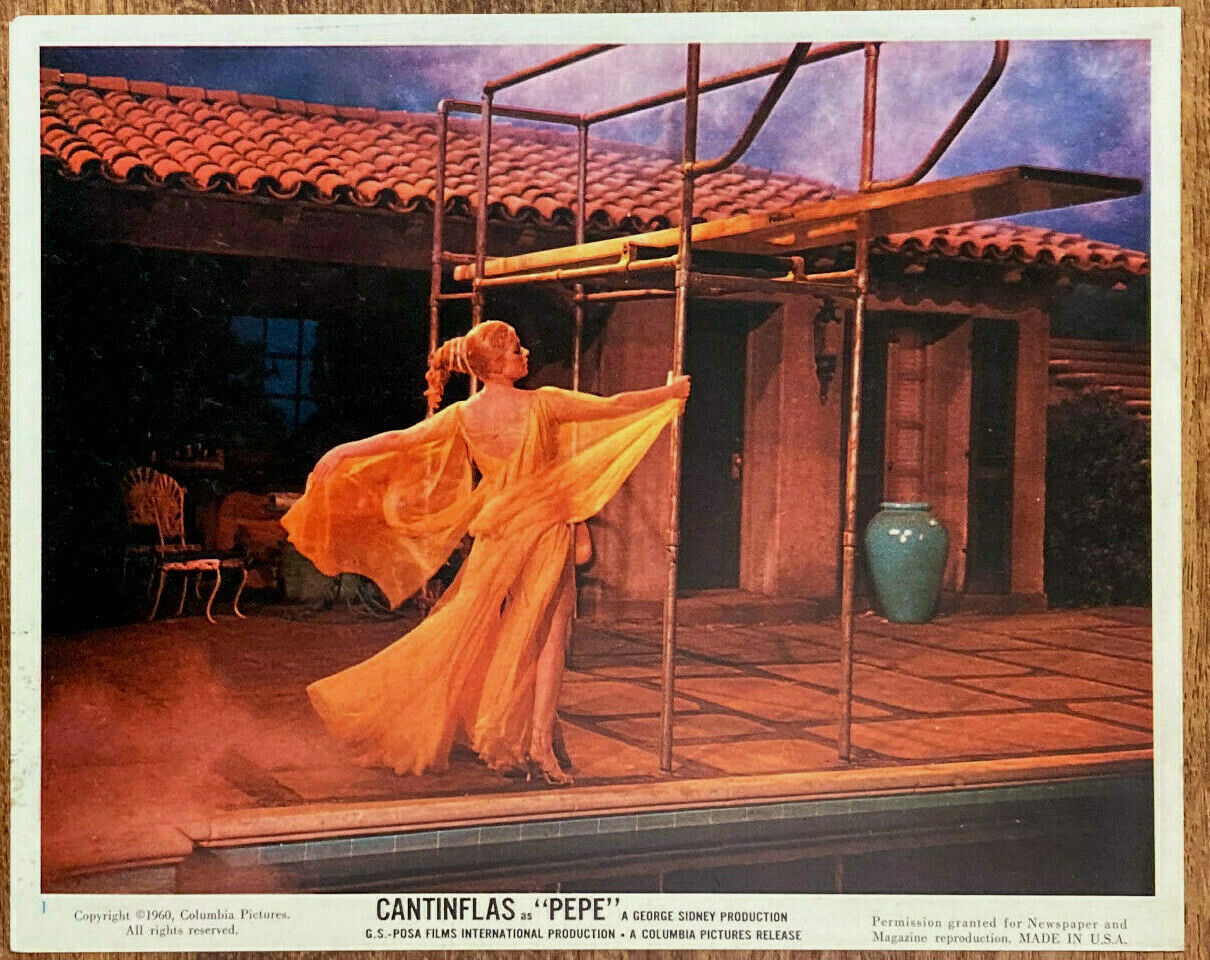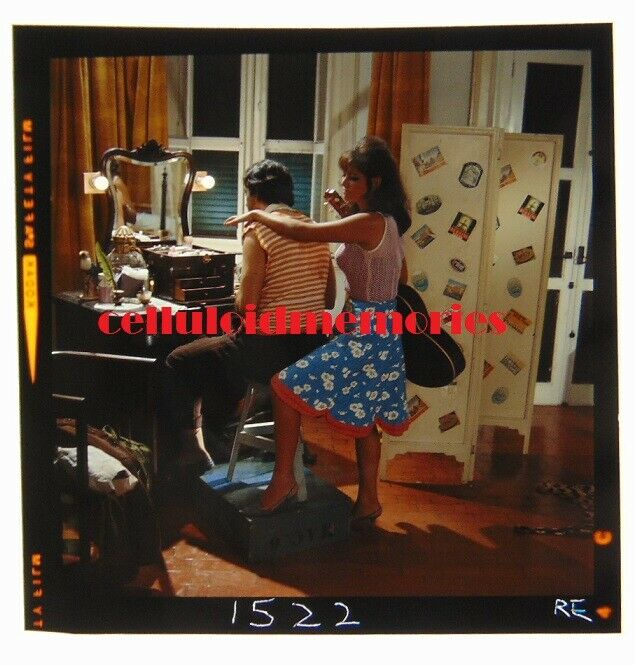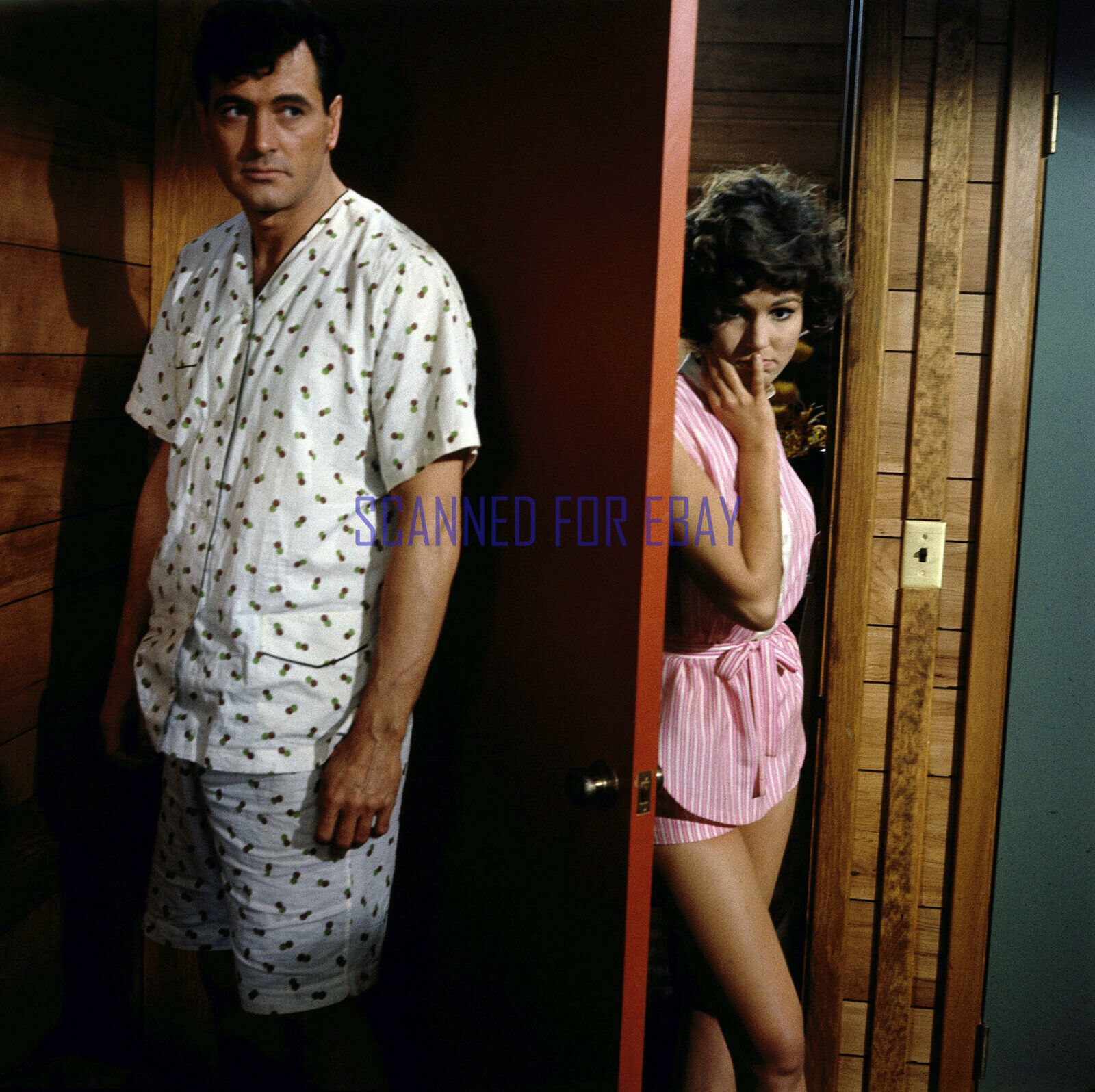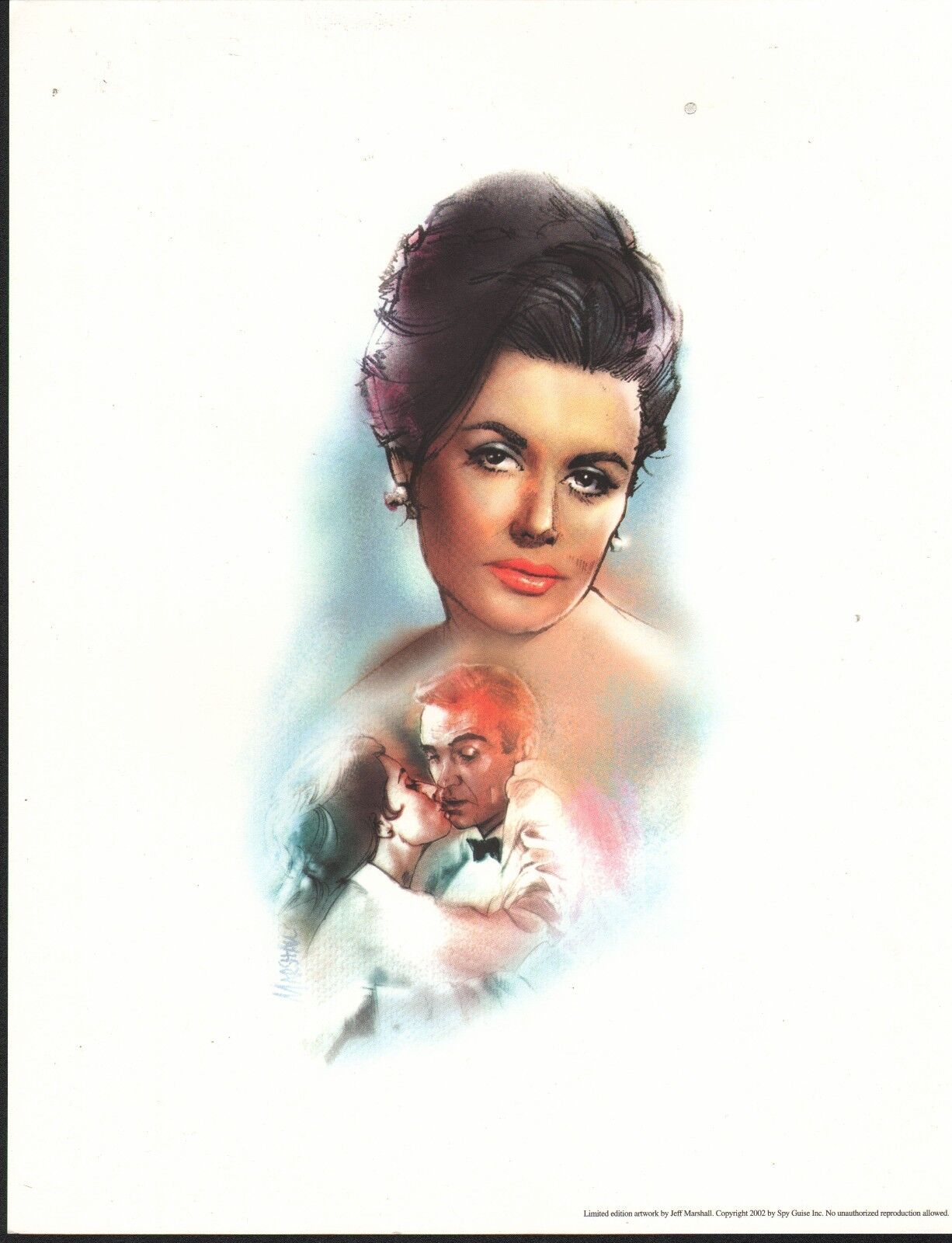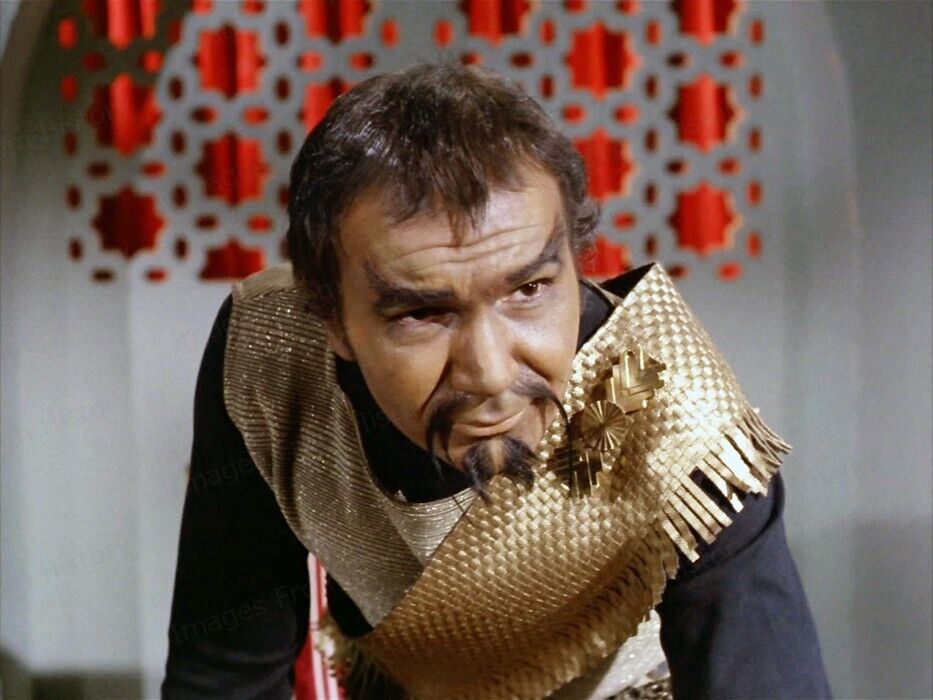-40%
Lot of 2 MINT, Peter Ustinov, Maggie Smith studio stills HOT MILLIONS (1968) Bob
$ 3.4
- Description
- Size Guide
Description
(They ALL look MUCH better than these pictures above. The circle with the words, “scanned for eBay, Larry41” does not appear on the actual photograph. I just placed them on this listing to protect this high quality image from being bootlegged.)Lot of 2, Peter Ustinov, Maggie Smith (1 color and 1 B&W) MINT studio stills HOT MILLIONS (1968) Karl Malden, Robert Morley, Cesar Romero – GET SIGNED!
This lot of approximately 8X10 photos will sell as a group. The first picture is just one of the group, please open and look at each still in this lot to measure the high value of all of them together. The circle with the words, “scanned for eBay, Larry41” does not appear on the actual photographs. I just placed them on this listing to protect these high quality images from being bootlegged. They would look great framed on display in your home theater or to add to your portfolio or scrapbook! Some dealers by my lots to break up and sell separately at classic film conventions at much higher prices than my low minimum. A worthy investment for gift giving too!
PLEASE BE PATIENT WHILE ALL PICTURES LOAD
After checking out this item please look at my other unique silent motion picture memorabilia and Hollywood film collectibles! COMBINE SHIPPING COST AND SAVE $
See a gallery of pictures of my other auctions
HERE!
These photographs are original photo chemical created pictures (vintage, from original Hollywood studio release) and not a copies or reproductions.
DESCRIPTION:
This comedy finds a veteran crook turning to modern computer technology to steal money from various companies. Even before he is released from jail Caesar (Peter Ustinov) is planning his high-tech heist. He cons American executive Klemper (Karl Malden) and sets up three bogus companies to receive funds from the corporate office. Klemper's faithful assistant Gnatpole (Bob Newhart) is suspicious and investigates the unusual activities. Smith (Robert Morley) gives Caesar the computer lesson that puts him on the fast track to thievery. Caesar marries Patty (Maggie Smith), who surprises her husband by earning more money than her crooked spouse by honest means. Cesar Romero is the smiling customs official who lets Caesar pass through with a bagful of money from the crime while Klemper's jar of instant coffee falls under suspicion.
CONDITION:
These quality vintage and original release stills are all in near MINT, uncirculated condition (near perfect). I doubt there are better condition stills on this title anywhere! Finally, they are not digital or repros. (They came from the studio to the theater during the year of release and then went into storage where the collector I bought them from kept them for over 45 years!) They are worth each but since I have recently acquired two huge collections from life long movie buffs who collected for decades… I need to offer these choice items for sale on a first come, first service basis to the highest bidder.
SHIPPING:
Domestic shipping would be FIRST CLASS and well packed in plastic, with several layers of cardboard support/protection and delivery tracking. International shipping depends on the location, and the package would weigh close to three quarters of a pound with even more extra ridge packing.
PAYMENTS:
Please pay PayPal! All of my items are unconditionally guaranteed. E-mail me with any questions you may have. This is Larry41, wishing you great movie memories and good luck…
BACKGROUND:
Hot Millions is a gentle and amusing comedy, probably too gentle for those who prefer boisterous laughs and breathless pacing. However, those who prefer comedies that sneak up on them and cause them to chuckle appreciatively, Hot Millions will be just their cup of tea. Peter Ustinov and Ira Wallach's screenplay is very well constructed, based upon a simple premise that provides the very workable framework upon which the film is based, and it is filled with small details and little moments that stay with the viewer after the film is over. Eric Till's direction is smooth and assured, and he's quite good at kicking the pace into medium-high gear without letting it spill over into frenetic. Stars Ustinov and Maggie Smith could not be better, nor (and this is the important part) more charming and endearing. They have a quirky chemistry that is immensely appealing, and their considerable comedic skills mesh together seamlessly. Bob Newhart utilizes his deadpan style of humor to good effect, and Karl Malden seems to be having a grand time as the sleazy and not too quick corporate man. Smith would follow Millions with her Oscar-winning turn in The Prime of Miss Jean Brodie.
Hirsute, puckish "renaissance man" Peter Ustinov was born in England to parents of Russian lineage. Trained at the London Theatre Studio, Ustinov was on stage from the age of 17, performing sketches written by himself in the 1939 revue Late Joys. In 1940, the year that his first play, Fishing for Shadows, was staged, the 19-year-old Ustinov appeared in his first film. Just before entering the British army, Ustinov penned his first screenplay, The True Glory (1945). School for Secrets (1946) was the first of several films starring, written, and directed by Ustinov; others include Vice Versa (1946), Private Angelo (1949), Romanoff and Juliet (1961) (adapted from his own stage play), and Lady L (1965). Perhaps Ustinov's most ambitious film directorial project was Billy Budd (1962), a laudable if not completely successful attempt to transfer the allegorical style of Herman Melville to the screen. As an actor in films directed by others, Ustinov has sparkled in parts requiring what can best be described as "justifiable ham" -- he was Oscar-nominated for his riveting performance as the addled Nero in 1951's Quo Vadis and has won the Best Supporting Actor prize for Spartacus (1961) and Topkapi (1964). Never one to turn down a good television assignment, Ustinov has appeared on American TV in such guises as King George and Dr. Samuel Johnson, winning the first of his three Emmy awards for the latter characterization; he is also a frequent talk show guest, regaling audiences with his droll wit and his mastery over several dialects. While he has never starred on-camera in a weekly TV series, his voice could be heard essaying virtually all the roles on the 1981 syndicated cartoon series Dr. Snuggles. The closest he has come to repeating himself was with his frequent theatrical film and TV-movie appearances as Agatha Christie's Belgian detective, Hercule Poirot, in the late '70s and early '80s. The author of several plays (the most popular of which included Love of Four Colonels and Photo Finish) and books (including two autobiographies), Peter Ustinov was still going strong into the 1990s, making a long-overdue return to Hollywood in the 1992 film Lorenzo's Oil.
Breathes there a theatergoer or film fan on Earth who has not, at one time or another, fallen in love with the sublimely brilliant British comedic actress Dame Maggie Smith? The daughter of an Oxford University pathologist, Smith received her earliest acting training at the Oxford Playhouse School. In 1952, she made her professional stage bow as Viola in Twelfth Night. Four years later she was on Broadway, performing comedy routines in Leonard Sillman's New Faces of 1956; that same year, she made her first, extremely brief screen appearance in Child in the House (she usually refers to 1959's Nowhere to Go as her screen debut). In 1959, Smith joined the Old Vic, and in 1962 won the first of several performing honors, the London Evening Standard Award, for her work in the West End production The Private Ear/The Public Eye. Her subsequent theatrical prizes include the 1963 and 1972 Variety Club awards for Mary Mary and Private Lives, respectively, and the 1990 Tony Award for her performance in the Broadway play Lettice and Lovage. In addition, Smith has won Oscars for The Prime of Miss Jean Brodie (1969) and California Suite (1978), and British Film Academy awards for A Private Function (1985), A Room With a View (1986), and The Lonely Passion of Judith Hearne (1987). These accolades notwithstanding, Smith has had no qualms about accepting such "lightweight" roles as lady sleuth Dora Charleston (a delicious Myrna Loy takeoff) in Murder By Death (1976), the aging Wendy in Steven Spielberg's Peter Pan derivation Hook (1991), and the Mother Superior in Whoopi Goldberg's Sister Act films of the early '90s. During the same decade, she also took more serious roles in Richard III (1995), Washington Square (1997), and Tea With Mussolini (1999). On a lighter note, her role in director Robert Altman's Gosford Park earned Smith her sixth Oscar nomination. She earned a whole new generation of fans during the first decade of the next century when she was cast as Professor McGonagall in Harry Potter and the Sorcerer's Stone, a part she would return to for each of the film's phenomenally successful sequels. She worked in other films as well including Divine Secrets of the Ya-Ya Sisterhood, Becoming Jane, and Nanny McPhee Returns. In 2010 she earned rave reviews for her work in the television series Downton Abbey. Made a Dame Commander in 1989, Smith was elected to the Theatre Hall of Fame in 1994. Previously married to the late actor Sir Robert Stephens, she is the wife of screenwriter Beverly Cross and the mother of actors Toby Stephens and Chris Larkin.
The son of Yugoslav immigrants, Karl Malden labored in the steel mills of Gary, Indiana before enrolling in Arkansas State Teachers College. While not a prime candidate for stardom with his oversized nose and bullhorn voice, Malden attended Chicago's Goodman Dramatic School, then moved to New York, where he made his Broadway bow in 1937. Three years later he made his film debut in a microscopic role in They Knew What They Wanted (1940), which also featured another star-to-be, Tom Ewell. While serving in the Army Air Force during World War II, Malden returned to films in the all-serviceman epic Winged Victory (1944), where he was billed as Corporal Karl Malden. This led to a brief contract with 20th Century-Fox -- but not to Hollywood, since Malden's subsequent film appearances were lensed on the east coast. In 1947, Malden created the role of Mitch, the erstwhile beau of Blanche Dubois, in Tennessee Williams' Broadway play A Streetcar Named Desire; he repeated the role in the 1951 film version, winning an Oscar in the process. For much of his film career, Malden has been assigned roles that called for excesses of ham; even his Oscar-nominated performance in On the Waterfront (1954) was decidedly "Armour Star" in concept and execution. In 1957, he directed the Korean War melodrama Time Limit, the only instance in which the forceful and opinionated Malden was officially credited as director. Malden was best known to TV fans of the 1970s as Lieutenant Mike Stone, the no-nonsense protagonist of the longrunning cop series The Streets of San Francisco. Still wearing his familiar Streets hat and overcoat, Malden supplemented his income with a series of ads for American Express. His commercial catchphrases "What will you do?" and "Don't leave home without it!" soon entered the lexicon of TV trivia -- and provided endless fodder for such comedians as Johnny Carson. From 1989-92, Malden served as president of the Academy of Motion Picture Arts and Sciences.
A Chicagoan from head to toe, American comedian Bob Newhart started his workaday life as a certified public accountant after flunking out of law school. As a means of breaking his job's monotony, Newhart would call his friend Ed Gallagher, and improvise low-key comedy sketches. A mutual friend of Newhart and Gallagher's, Chicago deejay Dan Sorkin, tape-recorded some of these off-the-cuff routines and played them for Warner Bros. records. Newhart suddenly found himself booked into a Houston nightclub -- his first-ever public appearance. Armed with telephone-conversation routines which delineated how Abe Lincoln would be handled by a publicity agent, or how Abner Doubleday would have fared trying to sell baseball to a modern-day novelty firm, Newhart recorded his first comedy album in 1960 -- which evidently struck a nerve with fellow white-collar workers, since it sold 1,500,000 copies. The hottest young comic on the club-and-TV circuit, Newhart was offered starring roles in situation comedies, but felt he wasn't a good enough actor to make a single character interesting week after week. Instead, he signed in 1961 for NBC's The Bob Newhart Show, a comedy-variety series which nosedived in the ratings but won an Emmy. Fearing that TV would eat up all his material within a year or so, Newhart went back to nightclubs after his one-season series was cancelled. Sharpening his acting skills in TV guest spots and in several films (his first, 1962's Hell is For Heroes, was so unnerving an experience that Bob repeatedly begged the producers to kill his character off before the fadeout), Newhart felt emboldened enough to attempt a regular TV series again in 1972. This Bob Newhart Show cast the comedian as psychologist Bob Hartley - an ideal outlet for his "button-down" style of dry humor. Six seasons and several awards later, Newhart was firmly established as a television superstar; this time around he wasn't cancelled, but ended the series on his own volition, feeling the series had exhausted its bag of tricks. Most popular sitcom personalities had come acropper trying to repeat their first success with a second series, but Newhart broke the jinx with Newhart in 1982, wherein Bob played author Dick Loudon, who on a whim decided to open a New England colonial inn. Newhart was every bit as popular as his earlier sitcom, and, like the previous show, the series ended (in 1990) principally because Newhart chose to end it. This he did with panache: Newhart's final scene suggested the entire series had been a bad dream experienced by Bob Newhart Show's Bob Hartley! A third starring sitcom, 1992's Bob, found Newhart playing a cult-figure comic book artist; alas, despite excellent scriptwork and the usual polished Newhart performance, this new series fell victim to format tinkering and poor timeslots. Over teh course of the next few decades, Newhart would frequently turn up in guest roles on shows like Murphy Brown, ER, and Desperate Housewives, and though his 1997 odd couple sitcom George & Leo failed to find its footing, he did appear in all three installments of TNT's popular fantasy trilogy The Librarian, starring Noah Wyle. Meanwhile, cameos in such films as Elf and Horrible Bosses continually offered a gentle reminder that comedy's nicest funnyman could still crack us up.
Born in New York City to parents of Cuban extraction, American actor Cesar Romero studied for his craft at Collegiate and Riverdale Country schools. After a brief career as a ballroom dancer, the tall, sleekly handsome Romero made his Broadway debut in the 1927 production Lady Do. He received several Hollywood offers after his appearance in the Preston Sturges play Strictly Dishonorable, but didn't step before the cameras until 1933 for his first film The Shadow Laughs (later biographies would claim that Romero's movie bow was in The Thin Man [1934], in which he was typecast as a callow gigolo). Long associated with 20th Century-Fox, Romero occasionally cashed in on his heritage to play Latin Lover types, but was more at home with characters of indeterminate nationalities, usually playing breezily comic second leads (whenever Romero received third billing, chances were he wasn't going to get the girl). Cheerfully plunging into the Hollywood social scene, Romero became one of the community's most eligible bachelors; while linked romantically with many top female stars, he chose never to marry, insisting to his dying day that he had no regrets over his confirmed bachelorhood. While he played a variety of film roles, Romero is best remembered as "The Cisco Kid" in a brief series of Fox programmers filmed between 1939 and 1940, though in truth his was a surprisingly humorless, sullen Cisco, with little of the rogueish charm that Duncan Renaldo brought to the role on television. The actor's favorite movie role, and indeed one of his best performances, was as Cortez in the 1947 20th Century-Fox spectacular The Captain From Castile. When his Fox contract ended in 1950, Romero was wealthy enough to retire, but the acting bug had never left his system; he continued to star throughout the 1950s in cheap B pictures, always giving his best no matter how seedy his surroundings. In 1953 Romero starred in a 39-week TV espionage series "Passport to Danger," which he cheerfully admitted to taking on because of a fat profits-percentage deal. TV fans of the 1960s most closely associate Romero with the role of the white-faced "Joker" on the "Batman" series. While Romero was willing to shed his inhibitions in this villainous characterization, he refused to shave his trademark moustache, compelling the makeup folks to slap the clown white over the 'stache as well (you can still see the outline in the closeups). As elegant and affluent-looking as ever, Romero signed on for the recurring role of Peter Stavros in the late-1980s nighttime soap opera "Falcon Crest." In the early 1990s, he showed up as host of a series of classic 1940s romantic films on cable's American Movie Classics. Romero died of a blood clot on New Year's Day, 1994, at the age of 86.


